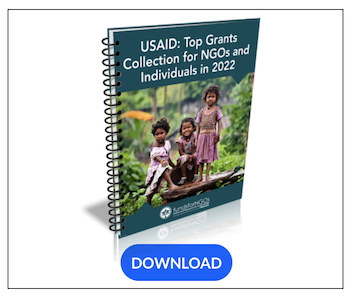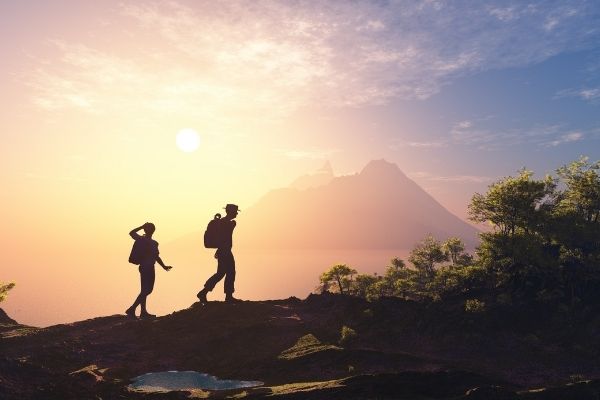, Consultant ,
Contract
This is a Consultancy contract. More about Consultancy contracts.
,
Secteur de tutelle : Secteur de l’éducation (ED) Lieu d’affectation: Yaounde Catégorie d’emplois: Éducation Type de contrat : Consultant Senior Durée du contrat : 40 jours Recrutement ouvert à : Candidats externes Clôture des candidatures (minuit heure de Paris) : 26 août 2022 Valeurs fondamentales de l’UNESCO : Engagement envers l’Organisation, intégrité, respect de la diversité, professionnalisme **RESUME DES FONCTIONS DU POSTE** ——————————— Le Cameroun à l’instar des pays du monde entier a été secoué par la crise sanitaire due au COVID-19. La prolifération exponentielle de la maladie a contraint les Gouvernements à prendre un ensemble de mesures drastiques allant de la fermeture des frontières à la fermeture des établissements scolaires et universitaires. Ce qui a conduit à l’arrêt systématique des enseignements de la maternelle au supérieur, sans oublier la formation professionnelle. D’après le SIGE, cette décision aura ainsi affecté la scolarisation de 7,2 millions d’élèves et étudiants régulièrement inscrits dans les établissements publics et privés sur l’ensemble du territoire national, dont environ 4,5 millions d’enfants du primaire (avec 47% de filles) ; 1,8 millions d’élèves du secondaire. Au regard des nombreuses conséquences liées à la fermeture des établissements qui vont largement au-delà du spectre scolaire, le Gouvernement en collaboration avec ses partenaires techniques et financiers a élaboré et adopté un plan national de riposte à l’impact de la COVID-19 dans le secteur de l’éducation et de la formation. Venant en appui à la mise en œuvre des activités de ce plan national de riposte, *le Projet de riposte d’urgence contre la COVID-19 dans l’enseignement de base au Cameroun a été élaboré et soumis du Partenariat Mondial pour l’Education (PME)*. Dans la mise en œuvre de cet important projet, le Gouvernement, avec le concours de l’UNESCO a déroulé et adopté un ensemble de solutions alternatives via l’utilisation des dispositifs d’enseignement à distance basés sur les Technologies de l’Information et de la Communication (TICs), parmi lesquelles la Campagne #FocusOnExams, avec pour principales cibles les élèves en classes d’examens. Également, des programmes d’enseignements ont été élaborés et diffusés à travers plusieurs canaux (Radio, Télévision, Réseaux Sociaux, supports papiers, etc.). Malgré les limites observées en termes d’accès des populations à ces canaux de diffusion (l’enquête ART réalisée par l’INS en 2016, on relève que 55% des ménages disposent d’un poste de télévision à domicile. Ce taux d’accès à la télévision atteint 88% pour les zones urbaines et se situe à environ 31% pour les zones rurales), il convient de noter que cette approche d’enseignement à distance a néanmoins garanti la continuité de l’apprentissage d’une part et permis l’achèvement du calendrier scolaire bien que décalé. A noter à cet effet que les résultats aux différents examens officiels ne s’éloignent pas des statistiques habituelles. Par ailleurs, afin d’approfondir les évidences que ces enseignements à distance ont pu avoir sur les apprenants et l’ensemble du système éducatif Camerounais, le projet prévoit de mener une étude pour évaluer le nombre d’élèves du primaire et du secondaire affectés par la pandémie de la COVID- 19 touchés par le programme d’enseignement à distance à travers la radio, la télévision et internet. Cette étude sera également mise à profit pour évaluer l’impact/effet du programme sur les apprentissages des élèves et les attentes de la communauté éducative dudit programme afin de formuler des recommandations au Gouvernement et ses Partenaires Techniques Finnciers pour la pérennisation le cas échéant de ce dispositif intégré d’enseignement à distance. Dans le cadre de l’opérationnalisation de cette activité, il est prévu le recrutement d’un consultant national ayant une expertise avérée en matière d’enquête statistique, une bonne connaissance du plan national de riposte à l’impact de la COVID-19 dans le secteur de l’éducation et de la formation et du *Projet de riposte d’urgence contre la COVID-19 dans l’enseignement de base au Cameroun.* **Objectifs de l’étude** L’objectif principal de l’étude est d’évaluer le nombre d’élèves du primaire et du secondaire affectés par la pandémie de la COVID- 19 touchés par le programme d’enseignement à distance à travers la radio, la télévision et internet. De façon spécifique, il s’agit de : – Estimer le nombre d’élèves ayant accès au TIC (télévision, radio, ordinateur, smartphone/portable, tablette, internet…) ; – Estimer le nombre d’élèves en classes d’examen et dans les classes intermédiaires du primaire et secondaire ayant bénéficié et été touchés par le programme de diffusion des cours par les différents canaux (radio, télévision et internet) ; – Evaluer la contribution du programme de diffusion à travers la radio, télévision et internet sur les apprentissages et résultats des élèves pendant la période de confinement et des vacances scolaires ; – Avoir les perceptions et les attentes des élèves /enseignants et parents d’élèves en rapport avec le programme de diffusion des cours par les Télévisions et les Radios communautaires ; – Proposer des pistes de solutions pour la pérennisation du dispositif d’enseignement à distance au Cameroun. **Résultats attendus de l’étude** Au terme de la mission, le principal résultat est le rapport de l’étude d’évaluation du nombre d’élèves du primaire et du secondaire affectés par la pandémie de la COVID- 19 touchés par le programme d’enseignement à distance à travers la radio, la télévision et internet. Ce rapport devra faire ressortir les aspects ci- dessous : – La méthodologie utilisée ; – Une analyse sur – le nombre d’élèves ayant accès au TIC (télévision, radio, ordinateur, smartphone/portable, tablette, internet…) ; – le nombre d’élèves en classes d’examen et dans les classes intermédiaires du primaire et secondaire ayant bénéficié et été touchés par le programme de diffusion des cours par les différents canaux (radio, télévision et internet) ; – l’évaluation de la contribution du programme de diffusion à travers la radio, télévision et internet sur les apprentissages et résultats des élèves pendant la période de confinement ; – les perceptions et les attentes des élèves /enseignants et parents d’élèves en rapport avec le programme de diffusion des cours par les Télévisions et les Radios communautaires. – Les pistes de solutions pour la pérennisation du dispositif d’enseignement à distance au Cameroun. **Livrables** A l’issue de cette étude, les produits suivants sont attendus : – Les outils de collecte et la méthodologie de l’étude ; – La base de données et rapport d’analyses de données. **Démarche méthodologique** L’approche mixte combinant une enquête de terrain sur un échantillon représentatif et une exploitation des données secondaires sera utilisée au cours de cette étude. A cet effet, le consultant(e) proposera une offre technique et financière faisant ressortir les éléments suivants : – – Techniques d’échantillonnage ; – Processus de collecte de donnés sur le terrain/plan de déploiement ; – Saisie, traitement et analyse des données ; – Plan de restitution des résultats ; – Chronogramme des activités ; – Budget détaillé de l’ensemble des activités. **COMPETENCES (Fondamentales / Managériales)** ———————————————- Responsabilité (F) Communication (F) Innovation (F) Partage des connaissances et volonté constante d’amélioration (F) Planification et organisation (F) Culture du résultat (F) Travail en équipe (F) Professionnalisme (F) Pour plus d’informations, merci de consulter le [Référentiel des compétences de l’UNESCO.](https://en.unesco.org/sites/default/files/competency_framework_e.pdf) **QUALIFICATIONS REQUISES** ————————— **Education :** Au minimum, Master (BAC+5) dans l’un des domaines suivants : Statistiques, Démographie, Sciences de l’Education, Planification de l’éducation, Gestion des projets et Economie de l’éducation. **Expérience :** – Expertise avérée en matière d’enquête et recensement statistique ; – Bonne connaissance du plan national de riposte à l’impact de la COVID-19 dans le secteur de l’éducation et de la formation et du Projet de riposte d’urgence contre la COVID-19 dans l’enseignement de base au Cameroun ; – Bonne maitrise des grands défis du système éducatif camerounais notamment avec en lien avec la mise en place du dispositif intégré d’enseignement à distance ; – Expérience solide en matière d’élaboration, de planification, de mise en œuvre et d’évaluation de programmes /projets liés à l’éducation ; – Solide expérience en matière d’évaluation du système d’éducation en situation d’urgence ; – Expérience confirmée de l’évaluation de programmes et de projets pluriannuels et comportant plusieurs volets ; – Capacité à traiter de grandes quantités et divers ensembles de données et documents liés au système éducatif ; – Avoir déjà conduit des missions d’évaluation de projets/ programmes similaires ; – Excellentes capacités de rédaction et de communication en Français, notamment dans le cadre d’approches participatives, multisectorielles et pluridisciplinaires – Bonne connaissance de la méthodologie de calcul, analyse et interprétation des indicateurs scolaires ; – Très bonne connaissance de l’ODD4- Education 2030 et de la stratégie 2063 de l’UA. **PROCESSUS DE SÉLECTION ET DE RECRUTEMENT** ——————————————– Veuillez noter que tous les candidats doivent remplir une demande en ligne et fournir des informations complètes et exactes. Pour postuler, veuillez visiter le site Web de l’UNESCO [carrières](https://careers.unesco.org/careersection/2/joblist.ftl). Aucune modification ne peut être apportée à la candidature soumise. L’évaluation des candidats est basée sur les critères de l’avis de vacance de poste et peut inclure des tests et/ou des évaluations, ainsi qu’un entretien basé sur les compétences. L’UNESCO utilise des technologies de communication telles que la vidéo ou la téléconférence, la correspondance par e-mail, etc. pour l’évaluation des candidats. Veuillez noter que seuls les candidats sélectionnés seront contactés et que les candidats à l’étape de sélection finale seront soumis à une vérification des références sur la base des informations fournies. L’UNESCO rappelle que la considération dominante dans le recrutement du personnel doit être la nécessité d’assurer à l’Organisation les services de personnes possédant les plus hautes qualités de travail, de compétence et d’intégrité. L’UNESCO applique une politique de tolérance zéro à l’égard de toute forme de harcèlement. L’UNESCO s’est engagée à atteindre et à maintenir une répartition géographique équitable et diversifiée, ainsi que la parité des genres parmi les membres de son personnel dans toutes les catégories et à tous les niveaux. En outre, l’UNESCO est résolue à atteindre une diversité de personnel sur le plan du genre, de la nationalité et de la culture. Les candidatures de ressortissants d’États membres non et sous-représentés ([veuillez cliquer ici pour la dernière mise à jour](https://fr.unesco.org/careers/geographicaldistribution)) sont particulièrement bienvenues et vivement encouragées. Les personnes issues de groupes minoritaires et de groupes autochtones, ainsi que les personnes handicapées, sont également encouragées à postuler. Toutes les candidatures seront traitées avec la plus grande confidentialité. Une mobilité mondiale est requise pour les membres du personnel nommés sur des postes internationaux. L’UNESCO ne prend de frais à aucune étape du recrutement.
, Apply now , Added 16 hours ago – Updated 1 hour ago – Source: careers.unesco.org









